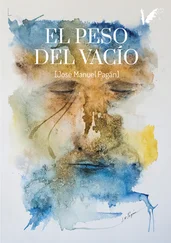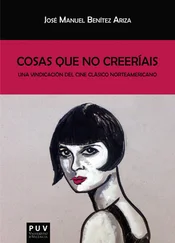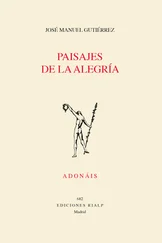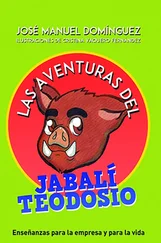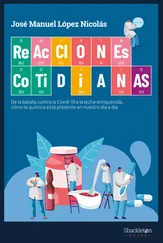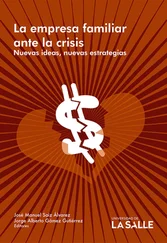KLINGSOR’S LAST SUMMER (see: ⁄LTIMO VERANO DE KLINGSOR).
KLIMT, GUSTAV. In the sense that a mane of hair in the hue known as red ochre held great meaning for me. I’d taken a long while to develop this passion but it had the impact of a sudden awakening when it finally bloomed within me, as when we’re no longer hoping for anything from a boring opera and then, in the last act, a backdrop is lowered with a beautiful waterfall or a Chinese pagoda. To discover the splendor of red hair was to set foot for the first time upon the sands of a terra incognita: a new displacement of the soul which, within my sentimental education, acquired the worth of a pilgrimage to Tibet.
I. At a spot along Nevsky Prospekt, LINDA, who, as I would later learn, was named Anastasia Stárseva, was waiting for me. She’d been playing the FLUTE in the portal of the Kazan Cathedral and THELONIOUS stopped to listen to her. Moved, he thought of the MAGIC FLUTE and his adolescent years, and allowed himself to be carried off by the FLUTE’S trill, the human warmth of its metallic resonance. When he reopened his eyes onto that morning — Saint Petersburg, the cathedral’s colonnade — he discovered in surprise that a halo surrounded the flautist. Then he took a closer look and was left mute with astonishment. This was LINDA’S skin. As if it had been deliberately stretched across her cheeks in such a way as to retract, while she blew into the FLUTE, without forming any wrinkles, assimilating itself into the depths. Only a slight intensification of tone to a deeper red gave away the work of that skin, the subcutaneous flow of blood. (In winter, cheeks like that, brushstrokes of bright red applied by the HARD FROST, embellished the vestibule of a movie theater where we’d taken refuge to warm up: the vivid bloom of a naive doll’s painted face. Then a gradual return to a pale pink that bespoke such freshness, a quality that belonged to the centuries before the habit of sunbathing became widespread, and that was very well suited to the still life V** and I comprised, stretched out on the bed: the sheet’s heavy folds, the leaden gray of a vase, the inchoate drift of our disarticulated limbs, dark against pale.)
After a short pause, the flautist attacked a march with great resolve — the happy tremolo — then almost immediately interrupted her playing to remove her warm woolen cap. A luxuriant mass of red hair, rolled into locks thick as snakes, fell in cascades over her back, shoulders, chest. ( Oh how well doth a fair colour and a brilliant sheen upon the glittering hair! Behold it encountereth with the beams of the sun like swift lightning, or doth softly reflect them back again, or changeth clean contrary into another grace. Sometimes the beauty of the hair, shining like gold, resembles the colour of honey; sometimes, when it is raven black, the blue plume and azure feathers about the necks of does, especially when it is anointed with the nard of Arabia, or trimly tuffed out with the teeth of a fine comb; and if it be tied up in the nape of the neck, it seemeth to the lover that beholdeth the same as a glass that yieldeth forth a more pleasant and gracious comeliness. — The Golden Ass, Being the Metamorphoses of Lucius Apuleius, translated by William Adlington.) Monk stops short, fears he will lose his footing and topple into the abyss at his feet, and quickly raises his eyes beyond this splash of red ochre, locating the bridge with its winged lions, the canal’s gray parapet, to rest them there a while, the girl forgotten in the depths of his peripheral vision. His calm regained, he courageously resolves to focus his gaze on her once more: the apparition of Venus on the seashell, a chorus of little angels, their cheeks puffed out, blowing. A vision that filled Monk with indescribable tenderness: the great God who has placed another portion of that BREAD. .
I wonder if THELONIOUS would ever have discovered LINDA if not for the miracle of that music. Be that as it may, he decides to follow her. He watches her pick up the hat full of small change, then separate the FLUTE into three parts and return them to their case; he watches her take the arm of her friend in the overcoat and walk away from the cathedral toward Nevsky Prospekt. .
KVAS. Russia is an old country with strange fermented beverages and barrel staves lying in the mud. I jump from stave to stave to keep my boots from getting dirty, while dogs bark behind fences. At the corner — this city on the Volga where I’ve come to spend a few weeks, these low brick buildings — the same woman as yesterday is pouring out KVAS.
LENIN ( the swine ). “A man’s at the door for you, quite the BRODIAGA,” RUDI murmurs in my ear.
I went out to the lobby. The rain had stopped and the day was still as bright as it had been at six that evening. I recognized my baggage handler’s checked jacket and black cap.
“Dimitri!”
“(It’s Kolia.)” “Kolia!” I turned to the doorman. “He’s a friend.”
“However did you find me? What a surprise! Come in and join us; no one will mind.”
Touched that I hadn’t put him out in the street, he lied, “I’ve been thinking about you all day.”
“Say no more,” I patted his back in an expansive gesture as if I were the owner of many a десятина of land and muzhiks in abundance.
The duchess studied him from behind the nonexistent monocle of her asperity. To the already questionable fact of having agreed to share a table with strangers was now added the inclusion of this personage, who bore a distinct resemblance to the sort of family man who ducks out of the house to fritter away his salary drinking wine next to fences.
Maarif, however, gave no sign of discontent. He had remained silent since his arrival. Now he was watching the general, who ate with ancestral appetite, as if he were just back from a difficult maneuver in the Sea of Barents. Maarif observed him ingesting the lustrous morsel of an anchovy, a small and agile dolphin lost between the general’s crunching mandibles, his wire-rimmed glasses in the foreground shooting off alarming sparks and belying the faint smile on his lips. His thick fingers. Another little fish. A long swig of AQUA VITAE, vodochka . (And the army of workers and peasants clambering over the bars of the Winter Palace, overthrowing the two-headed eagle.) Which was more or less what Maarif said, something like: October was not in vain, the fight to eradicate the weed of insatiable gluttony. The leader of that revolution, comrade. .
At the sudden explosion of the word LENIN, Kolia’s eyes went blank as if a great rage had possessed him. He leapt to his feet and began striking his glass with a fork: “ Gentlemen! No, Господа ( Gospoda )! And forgive me if I offend anyone by calling you that. Be aware that I cannot speak the word with any degree of assurance, and without a feeling of falsity, but I refuse to insult you with the word товáрищ”— tovarish or comrade—“though perhaps the general. .”
“No, that’s fine. Gospada! As in the old days: Gospada ofitseri!” (Meaning “ Señores oficiales! ” or “Esteemed officers!”)
a) The IMPERIUM in full-blown identity crisis. The TV had opened up the debate on how to address strangers in the street. There were certain hesitations regarding gospodin— its literal meaning, “master,” sounded offensive to some ears — and, too, over citizen, which conferred the stigma of not being a tovarish: “ Release that billy club, citizen, you are under arrest.” Some had opted for судар ( sudar )—“sir”—which was far too nineteenth-century, while the simplest people, vendors in the bazaars, had decided to stick with a term that left no room for doubt: мужч  на ( muzhina ), meaning, simply and plainly, man. Since all these forms of address entrained the insecurity of wearing someone else’s finery, I had seen polite, well-bred people recite each one in sequence, beginning with the stigmatized tovarish and ending with the laughable gentleman. (For years the phrase “Russian gentleman ” had been winning all competitions for who could come up with the shortest joke. “Once there was a Russian gentleman. . ” And that was it. That was the joke.)
на ( muzhina ), meaning, simply and plainly, man. Since all these forms of address entrained the insecurity of wearing someone else’s finery, I had seen polite, well-bred people recite each one in sequence, beginning with the stigmatized tovarish and ending with the laughable gentleman. (For years the phrase “Russian gentleman ” had been winning all competitions for who could come up with the shortest joke. “Once there was a Russian gentleman. . ” And that was it. That was the joke.)
Читать дальше
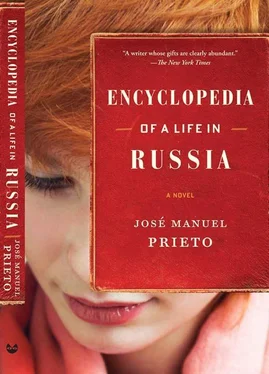
 на ( muzhina ), meaning, simply and plainly, man. Since all these forms of address entrained the insecurity of wearing someone else’s finery, I had seen polite, well-bred people recite each one in sequence, beginning with the stigmatized tovarish and ending with the laughable gentleman. (For years the phrase “Russian gentleman ” had been winning all competitions for who could come up with the shortest joke. “Once there was a Russian gentleman. . ” And that was it. That was the joke.)
на ( muzhina ), meaning, simply and plainly, man. Since all these forms of address entrained the insecurity of wearing someone else’s finery, I had seen polite, well-bred people recite each one in sequence, beginning with the stigmatized tovarish and ending with the laughable gentleman. (For years the phrase “Russian gentleman ” had been winning all competitions for who could come up with the shortest joke. “Once there was a Russian gentleman. . ” And that was it. That was the joke.)

